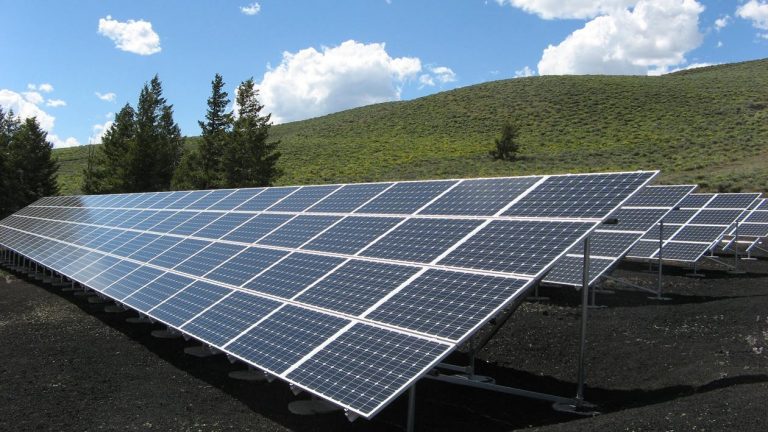
The global shipping market is recovering from a lull, new orders are finally picking up and the global economy is near pre-financial crisis levels. But the US government unveiled tariffs on the imports of solar panels earlier this year and the section 301 investigation into China is being drafted, are we about to re-enter the lost decade?
In the name of protectionism, the US government has raised tariffs on imported solar panels to protect its domestic manufacturers. The tariff is staged at 30% in the first year and reducing by 5% each year after. The tariffs will hit manufacturers of photovoltaic products in China, which dominate the sector globally, but it will also hit shipping companies due to the loss of exports to the US.
The wider story is more complicated, Solar Energy Industries Association (SEIA) protested immediately as the policy will cause the loss of an estimated 23,000 American jobs in 2018 alone. This is due to the loss in jobs in installation and other related jobs such as manufacturing metal racking systems and other related products.
It will also raise costs for consumers hoping to install solar panels in the US due to the higher costs and slow down the transition from fossil fuel to renewable energy.
Furthermore, China could raise tariffs on imports from the US, further denting international trade and therefore negatively impacting the shipping sector.
But this is just the beginning of what many are fearing a trade war between the two nations. In August last year, the US began investigating Chinese laws, policies and practices that may be harming American intellectual property rights, innovation or technological development. The investigation is being initiated under the Section 301 of the Trade Act of 1974 and therefore outside the World Trade Organization framework.
If China is found to have fallen foul of any trade agreements, the US can negotiate with China to remove the offending trade practice. But if that fails, the US could initiate trade sanctions and raise import duties on the foreign country’s products as a means to rebalance lost concessions.
Effectively this could lead to a trade war reducing the amount of businesses shipping firms would have received.
The wider implications could include loss of exports on both sides and therefore revenue for firms and negatively impacting employment and their economies.
It will also raise costs for consumers hoping to install solar panels in the US due to the higher costs and slow down the transition from fossil fuel to renewable energy.
Furthermore, China could raise tariffs on imports from the US, further denting international trade and therefore negatively impacting the shipping sector.
But this is just the beginning of what many are fearing a trade war between the two nations. In August last year, the US began investigating Chinese laws, policies and practices that may be harming American intellectual property rights, innovation or technological development. The investigation is being initiated under the Section 301 of the Trade Act of 1974 and therefore outside the World Trade Organization framework.
If China is found to have fallen foul of any trade agreements, the US can negotiate with China to remove the offending trade practice. But if that fails, the US could initiate trade sanctions and raise import duties on the foreign country’s products as a means to rebalance lost concessions.
Effectively this could lead to a trade war reducing the amount of businesses shipping firms would have received.
The wider implications could include loss of exports on both sides and therefore revenue for firms and negatively impacting employment and their economies.